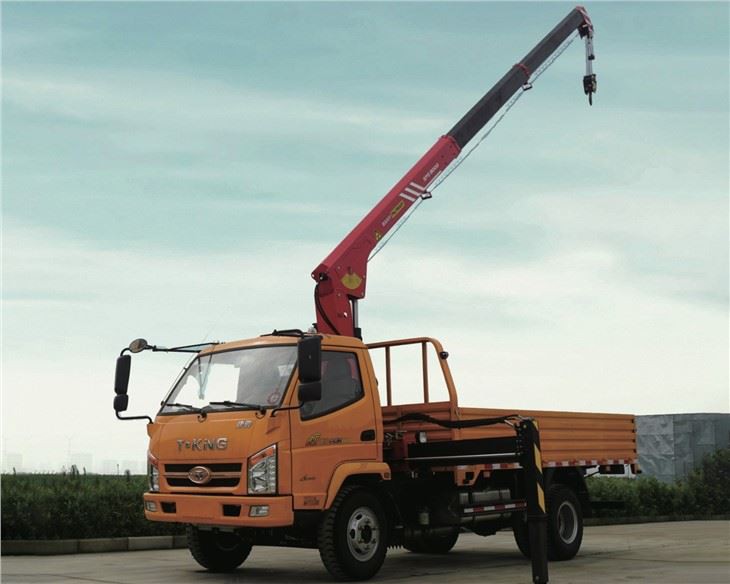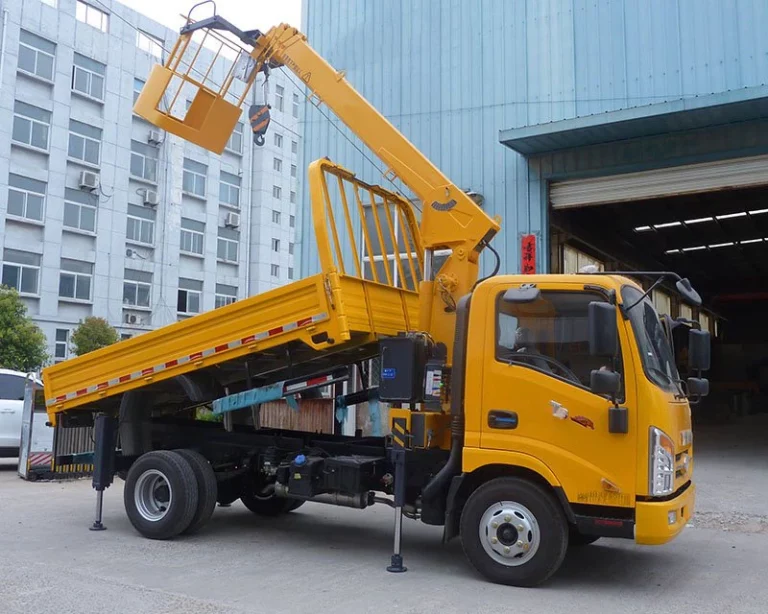Mobile fuel trucks are rapidly gaining traction in various industries, providing an efficient solution for on-site fuel delivery. This article explores the benefits, features, and operational aspects of mobile fuel trucks, serving industries from construction to logistics. Whether you’re a fleet manager, a construction site supervisor, or simply interested in fuel solutions, this comprehensive guide will offer invaluable insights.
What is a Mobile Fuel Truck?
A mobile fuel truck is a specialized vehicle designed to transport and dispense fuel directly to various equipment and vehicles in diverse environments. Unlike traditional fuel delivery methods, mobile fuel trucks can reach remote locations, minimizing downtime for businesses that rely on heavy machinery, trucks, and generators.
Types of Mobile Fuel Trucks
Mobile fuel trucks come in different types, each tailored to specific fuel types and industries:
1. Diesel Fuel Trucks
These trucks are primarily used to deliver diesel fuel to construction sites, farms, and other locations requiring heavy machinery. They often include special pumps that can dispense fuel quickly and efficiently.
2. Gasoline Fuel Trucks
Gasoline fuel trucks are used for delivering gasoline to service stations, landscaping companies, and small businesses needing bulk fuel supplies. They are equipped with safety features to comply with regulations concerning flammable liquids.
3. Biofuel Trucks
With a growing focus on sustainability, biofuel trucks carry renewable fuels such as biodiesel. These trucks are becoming increasingly popular among eco-friendly companies aiming to reduce their carbon footprint.
4. Multi-Fuel Trucks
Some mobile fuel trucks are designed to deliver multiple types of fuels, providing flexibility for businesses that operate varied equipment requiring different fuel types.
Benefits of Using Mobile Fuel Trucks
The adoption of mobile fuel trucks offers numerous advantages, enhancing productivity and saving costs for various business sectors:
1. Increased Efficiency
Mobile fuel trucks facilitate on-site refueling, minimizing downtime associated with fueling equipment and vehicles. This leads to increased efficiency and productivity on the job site.
2. Cost-Effective Solution
Using mobile fuel trucks can reduce transportation costs by eliminating the need for employees to travel to fuel stations. Furthermore, bulk purchasing of fuel typically results in cost savings.
3. Enhanced Safety
Mobile fuel trucks are built with safety features such as spill containment systems and fire suppression mechanisms, ensuring safe fuel handling and compliance with regulations.
4. Flexibility and Convenience
These trucks can be dispatched to remote locations where traditional fuel stations are not accessible, making fuel delivery convenient and streamlined.
5. Improved Inventory Management
Businesses can monitor fuel usage levels and manage inventories more effectively by using technology integrated into mobile fuel trucks.
Key Features of Mobile Fuel Trucks
Mobile fuel trucks come equipped with various features that improve their functionality, safety, and efficiency:
1. Fuel Dispensing Systems
These systems include high-efficiency pumps and hoses, designed for fast and accurate fuel delivery.
2. GPS Tracking
GPS technology allows real-time tracking of mobile fuel trucks, enabling fleet managers to monitor fuel delivery routes and schedules efficiently.
3. Onboard Fuel Management Technology
Advanced technology allows operators to track fuel consumption, issue reports, and manage fuel inventory seamlessly.
4. Safety Features
Mobile fuel trucks are equipped with safety features such as fire extinguishers, emergency shutoff valves, and spill containment systems.
5. Customizable Configurations
Trucks can be customized in terms of tank size, fuel type, and additional equipment based on specific operational needs.
Regulations and Compliance in Mobile Fuel Delivery
Operating mobile fuel trucks requires compliance with several regulations to ensure safety and environmental protection:
1. Federal and State Regulations
Operators must comply with federal and state regulations concerning fuel storage, handling, and transportation. The U.S. Environmental Protection Agency (EPA) and Department of Transportation (DOT) set strict guidelines to mitigate risks associated with fuel delivery.
2. Hazmat Training
Employees involved in mobile fuel delivery should undergo hazardous materials (hazmat) training to handle fuel safely and respond to emergencies effectively.
3. Licensing and Permits
Operating a mobile fuel truck often requires specific licenses and permits, varying by location. It is crucial for businesses to check local regulations to ensure compliance.
Practical Applications of Mobile Fuel Trucks
Mobile fuel trucks are utilized across various industries. Here are some practical applications:
1. Construction Sites
Construction companies utilize mobile fuel trucks to refuel heavy machinery and equipment on-site, ensuring continuous operation without the delays of traveling to refuel stations.
2. Agriculture
Farmers benefit from mobile fuel trucks that deliver fuel directly to tractors and other equipment, optimizing their operational efficiency during critical harvesting periods.
3. Logistics and Transportation
Fleets can reduce downtime for truck refueling during long-haul trips by utilizing mobile fuel trucks stationed strategically along routes.
4. Emergency Response
In emergencies, like natural disasters, mobile fuel trucks are essential for ensuring that emergency vehicles and equipment have continuous access to fuel.
Choosing the Right Mobile Fuel Truck
When selecting a mobile fuel truck, consider the following factors:
1. Fuel Type and Capacity
Assess the types of fuel you need to deliver and choose a truck with appropriate capacity for your requirements.
2. Compliance with Regulations
Ensure that the mobile fuel truck meets all local and federal regulations for safe fuel transportation and storage.
3. Reliability and Maintenance
Select a reliable provider that offers good maintenance services to ensure the longevity and functionality of the truck.
4. Technology Integration
Look for trucks that integrate technology for tracking, fuel management, and reporting to streamline operations.
5. Cost Considerations
Benchmark pricing across various manufacturers and consider additional costs such as fuel, maintenance, and operational expenses.
Cost of Mobile Fuel Trucks
The initial investment and operational costs of mobile fuel trucks vary widely based on specifications, features, and manufacturer. Here’s a breakdown of potential costs:
| Feature | Estimated Cost |
|---|---|
| Basic Mobile Fuel Truck | $25,000 – $50,000 |
| Advanced Features (GPS, Fuel Management) | $10,000 – $15,000 |
| Compliance and Safety Equipment | $5,000 – $10,000 |
| Operating Costs (Fuel, Maintenance) | $1,000 – $3,000/month |
FAQ Section
1. What types of fuel can mobile fuel trucks deliver?
Mobile fuel trucks can deliver various types of fuels, including diesel, gasoline, biofuels, and sometimes multiple fuel types based on the truck’s configuration.
2. How do mobile fuel trucks enhance safety?
They come equipped with spill containment systems, fire extinguishers, and safety protocols to mitigate risks associated with fuel delivery and handling.
3. Are mobile fuel trucks cost-effective for small businesses?
Yes, by reducing travel time to fuel stations and allowing bulk fuel purchases, mobile fuel trucks can offer significant savings for small businesses.
4. Do I need a special license to operate a mobile fuel truck?
Yes, operating a mobile fuel truck typically requires specific licensing and permits, which vary by location. Compliance with local regulations is essential.
5. How can I track fuel usage from a mobile fuel truck?
Many modern mobile fuel trucks are equipped with onboard fuel management systems that allow operators to track usage, monitor inventory levels, and generate reports easily.
6. What industries benefit the most from mobile fuel trucks?
Industries such as construction, agriculture, logistics, and emergency response benefit significantly from mobile fuel trucks due to their on-site fuel delivery capabilities.



